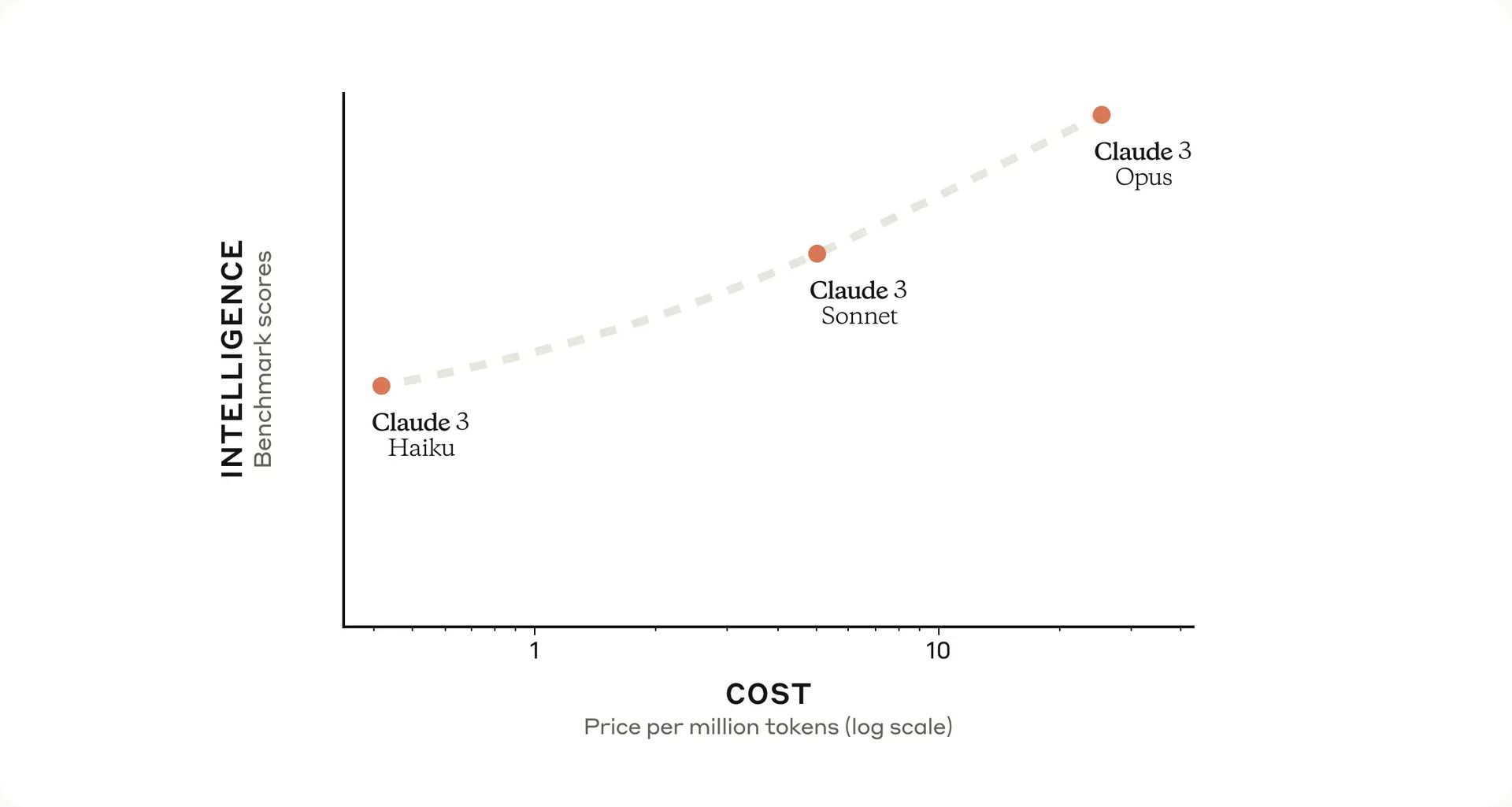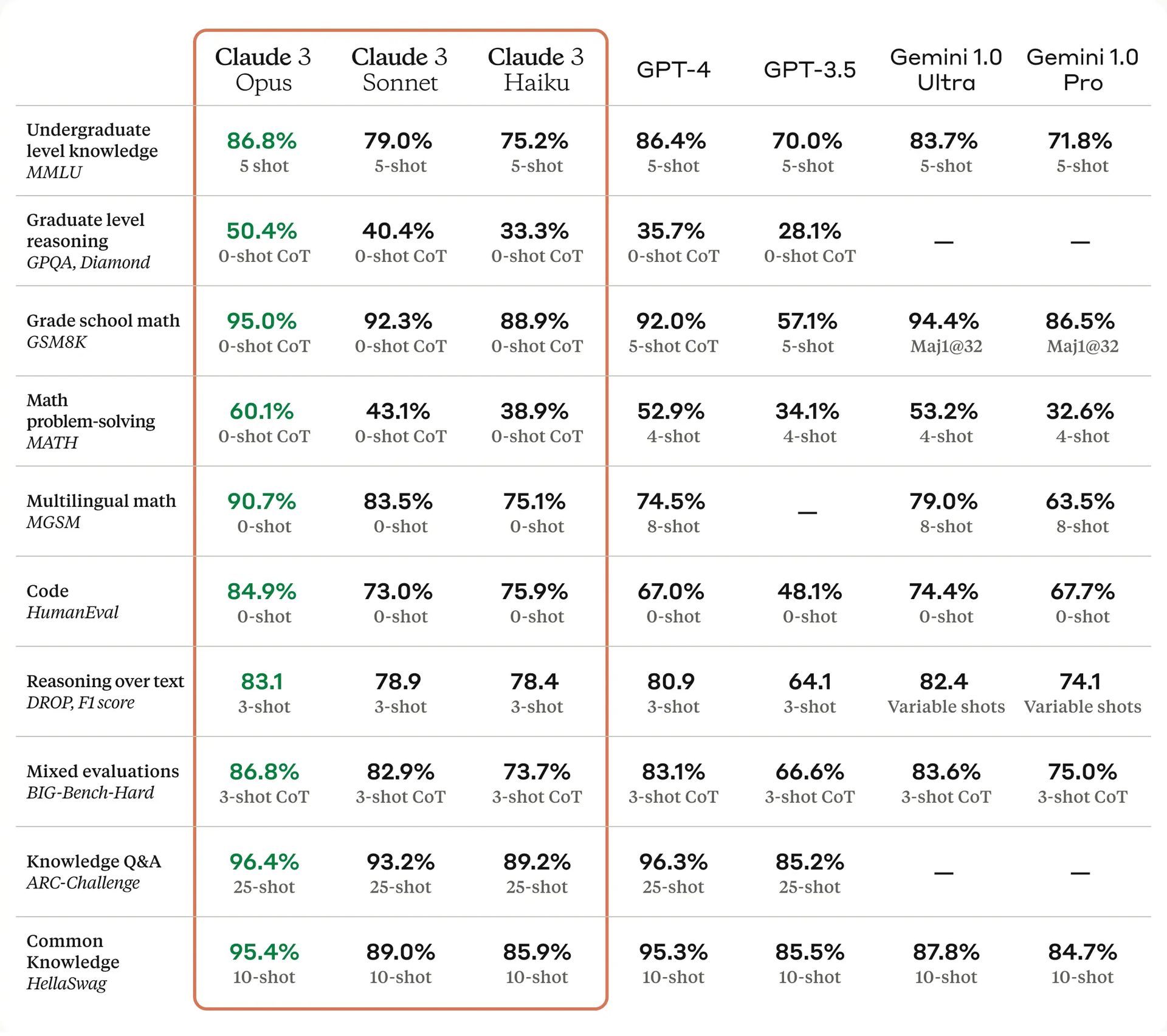Claude 3, the latest AI language model from research company Anthropic, is causing a stir in the tech world.
Anthropic boldly claims Claude 3 boasts superior performance compared to industry giants like OpenAI’s ChatGPT and Google’s Gemini.
But can the newcomer live up to the hype?
Let’s dive into Claude 3’s capabilities and see where it stands in the AI landscape.
What is Claude 3?
Claude 3 isn’t just a single AI model; it’s a family of them.
Anthropic offers three versions:
- Claude 3 Opus: The powerhouse of the family, designed for tasks demanding deep comprehension and advanced language generation
- Claude 3 Sonnet: Targeting mainstream use, it’s optimized for speed and versatility
- Claude 3 Haiku: The most compact model, geared toward cost-effectiveness
All Claude models share common strengths, including improved accuracy, better context understanding, and the ability to process visual formats like charts and graphs.

Claude 3 vs the competition
How does Claude 3 measure up to heavyweights like ChatGPT and Gemini? Anthropic put its models through rigorous benchmarks on its site.
Here’s how they stack up:
Comprehension and fluency
Anthropic makes bold claims about Opus, stating it demonstrates “near-human levels” of understanding.
To support this, they’ve released benchmark results where Opus outperforms comparable models on challenging reading comprehension tests.
For example, on the RACE dataset (a standard test for AI language understanding), Claude 3 Opus achieved an accuracy score of 92%, surpassing the performance of similar models.
This implies the ability to tackle complex instructions and nuanced language, potentially giving it an edge in real-world applications.
Multimodality
Claude 3 expands beyond traditional text-only AI models. Its ability to process both text and images opens up new possibilities. Imagine an AI that can analyze a product image and generate detailed descriptions, or one that summarizes information from a research paper with included charts and graphs.
This multi-modal functionality positions Claude family as a versatile tool with wider potential applications.
Nuanced responses
Anthropic is working to make its model bolder in its responses. Older AI models often avoided ”tricky” questions due to concerns about generating harmful or biased content. Anthropic aims to have Claude family engage with nuanced topics while still prioritizing safety.
This could lead to an AI that is more informative and engaging, and capable of handling complex discussions.

Bias and hallucination
It’s important to acknowledge that no AI model is without flaws. Even with improvements, the Claude family remains susceptible to “hallucinating” (making up information) and reflecting biases embedded in its massive training dataset.
Anthropic recognizes this challenge and emphasizes ongoing work to minimize these issues. Transparency about these limitations is crucial for responsible AI development.
The cost of innovation
Opus and Sonnet are available for developers to integrate into their applications. Haiku will be released soon.
You can experiment with Sonnet for free on claude.ai, with Opus offered as part of the Claude Pro subscription.
Both Sonnet and Haiku will soon be expanded to include Amazon Bedrock and Google Cloud’s Vertex AI Model Garden.
Here is a table that summarizes the features and pricing of all three models:
| Model | Key features | Potential use cases | Input cost ($/million tokens) \$ | Output cost (/million tokens) |
| Claude 3 Opus | Top-tier intelligence and language fluency | Task automation (complex actions, coding) | $15 | $75 |
| Handles open-ended prompts, complex scenarios | R&D (brainstorming, drug discovery) | |||
| Near-human level understanding | Strategy (data analysis, forecasting) | |||
| Claude 3 Sonnet | Balances intelligence and speed | Data processing (search & retrieval) | $3 | $15 |
| Strong performance, built for endurance | Sales (recommendations, forecasting) | |||
| Ideal for large-scale deployments | Time-saving (code generation, quality control) | |||
| Claude 3 Haiku | Prioritizes speed, near-instant responses | Customer interactions (live support, translations) | $0.25 | $1.25 |
| Handles simple queries and requests | Content moderation | |||
| Most affordable in its intelligence category | Cost-saving tasks (logistics, knowledge extraction) |
While it’s still early to determine if Claude family will truly revolutionize the AI landscape, its capabilities are undeniably impressive. If Anthropic continues to refine its models, Claude 3 could push the boundaries of what we expect from conversational AI, potentially challenging the dominance of existing players in the field.
The AI race is heating up, and it will be fascinating to watch Claude 3’s evolution.
Featured image credit: Anthropic.





